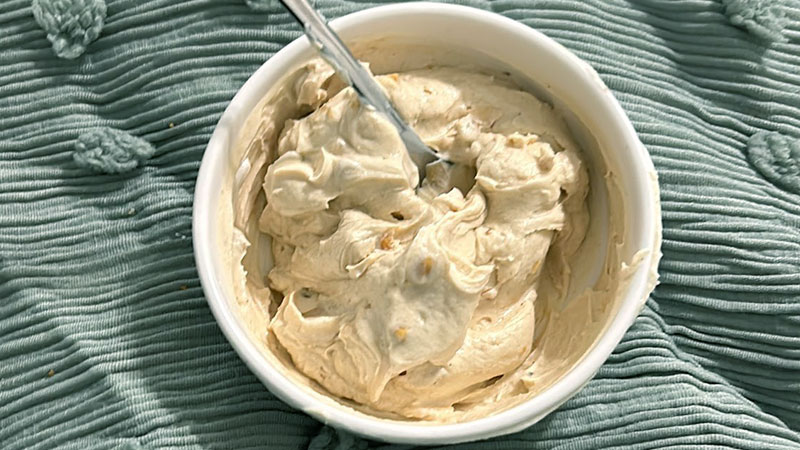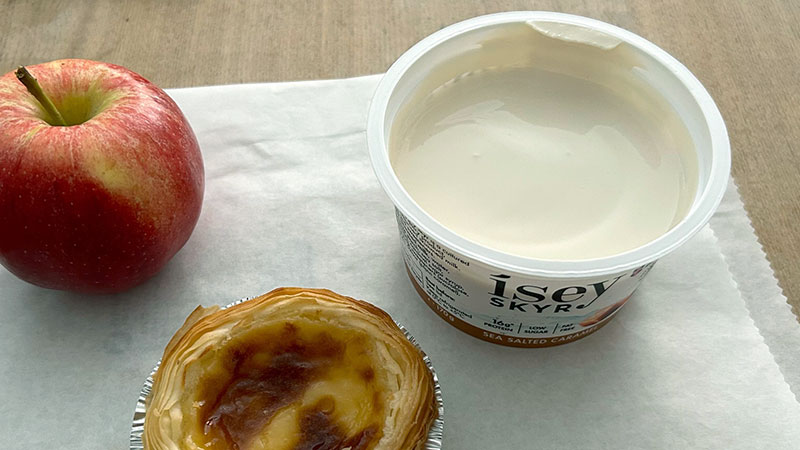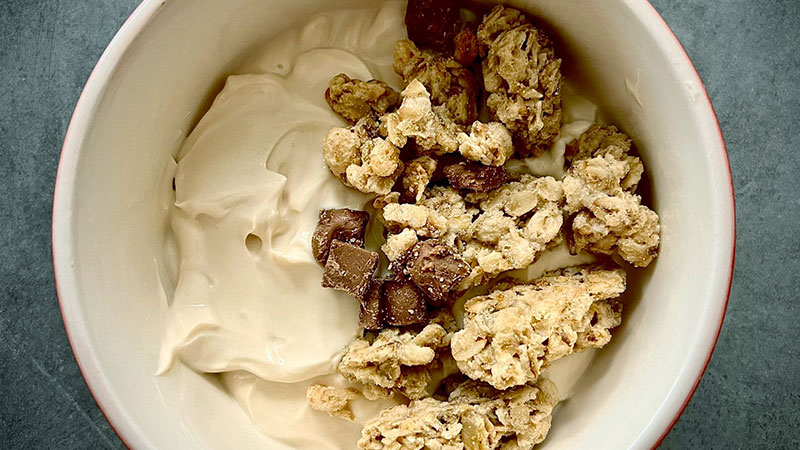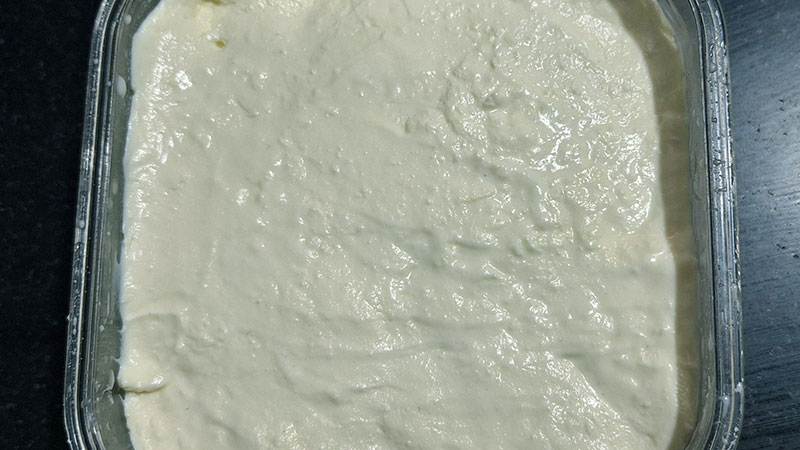Skyr, a traditional Icelandic dairy product, has been making waves in the health and wellness community.
This creamy, yogurt-like food isn’t just delicious; it’s packed with nutrients that can significantly boost overall health. Originating over a thousand years ago, skyr is now gaining popularity worldwide for its impressive nutritional profile.
Rich in protein and low in fat, skyr offers a perfect balance for those looking to maintain a healthy diet. It’s also loaded with probiotics, which support gut health and enhance digestion.
Whether you’re aiming to build muscle, lose weight, or simply enjoy a tasty snack, incorporating skyr into your diet can provide numerous health benefits worth exploring.

What Is Skyr?
Skyr is a traditional Icelandic cultured dairy product. It has the consistency of strained yogurt but boasts a milder flavor. Commonly classified as a fresh sour milk cheese, skyr is like curd cheese found in the Baltic states, the Low Countries, and Germany. It is consumed similarly to yogurt.
Its production involves heating skim milk, adding live cultures, and allowing it to incubate until it thickens. The whey is then strained off, resulting in a thick, creamy texture. With its roots tracing back to over a thousand years ago, skyr has been a staple in the Icelandic diet for centuries.
Nutritionally, it stands out due to its high protein content, low fat, and abundance of probiotics. Typically, a 150-gram serving of skyr contains around 15-17 grams of protein, less than 0.5 grams of fat, and significant amounts of calcium and vitamins. This nutritional profile makes it a favored choice among those seeking health-conscious food options.
Skyr’s versatility allows it to be used in various culinary applications. It can be eaten plain, mixed with fruit or honey, or used as a base in smoothies, dips, and cooking recipes. Its mild taste and creamy texture offer a delightful experience for those looking to diversify their dairy intake.
Summarizing, skyr isn’t just a dairy product; it’s a historical and nutritional powerhouse that’s versatile and beneficial for modern diets.
How Is Skyr Made?
The process of making skyr starts with simple but precise steps to ensure its unique texture and flavor.
Traditional Methods
Traditionally, skyr is made using skim milk from cows. The milk is heated gently to approximately 185°F to kill any harmful bacteria.
After cooling to about 100°F, rennet and live cultures are added. These cultures, often from a previous batch of skyr, help ferment the milk.
The mixture is left to ferment for several hours until it thickens. Once the fermentation process is complete, the curds are strained, removing most of the liquid whey, resulting in a thick, creamy product. This method preserves the high protein and low-fat content characteristic of skyr.
Modern Techniques
Modern production of skyr follows similar principles with added efficiencies. Large-scale producers use pasteurized skim milk, which is heated and then blended with specific bacterial cultures to ensure consistent quality.
Enzymes like rennet are added to aid coagulation. The mixture is incubated in controlled environments, ensuring optimal temperatures for fermentation.
Advanced machinery strains the whey from the curds more efficiently than traditional cloth methods. Despite these technological improvements, the resulting skyr maintains its nutritional profile, offering the same high protein content and low-fat benefits.
Nutritional Profile of Skyr

Skyr offers a robust nutritional profile, making it an excellent addition to any diet. It combines high protein, low fat, and essential vitamins and minerals to support overall health.
Macronutrients
Skyr packs significant macronutrients into each serving. A 150-gram portion contains 15-17 grams of protein, contributing to muscle building and repair.
This protein content surpasses regular yogurt, providing more satiety and supporting weight management.
Skyr contains less than 0.5 grams of fat per serving, making it an excellent option for those monitoring their fat intake. With only 100-120 calories per 150 grams, skyr is a nutrient-dense yet low-calorie food.
Vitamins and Minerals
Skyr is a rich source of essential vitamins and minerals. A 150-gram serving delivers 20% of the daily recommended calcium intake, supporting bone health.
It is also rich in B vitamins, especially riboflavin (B2) and vitamin B12, which aid in energy production and red blood cell formation.
Skyr contains phosphorus, important for healthy teeth and bones, and potassium, which helps regulate fluid balance and muscle function. These nutrients make skyr a well-rounded choice for boosting daily vitamin and mineral intake.
7. Health Benefits of Skyr
Skyr, a traditional Icelandic dairy product similar to yogurt, offers numerous health benefits due to its high protein content, low fat, and rich nutritional profile. Here are some of the key health benefits of incorporating skyr into your diet:
1. High in Protein

Skyr provides a significant protein boost, delivering 15-17 grams per 150-gram serving. For muscle building and repair, its high protein aids recovery and growth.
Athletes and active individuals benefit from skyr’s efficiency in meeting daily protein needs. Its protein content surpasses that of regular yogurt, offering a denser nutrient option.
2. Rich in Calcium

With 20% of the daily calcium intake found in a single 150-gram serving, skyr is an excellent calcium source. This level helps support bone density and prevent osteoporosis.
Adequate calcium intake is vital for strong teeth and bones, making skyr a beneficial daily addition.
3. Low in Fat

Skyr is low in fat, containing less than 0.5 grams per serving. This makes it a great choice for weight-conscious individuals.
Its low-fat content does not compromise its creamy texture, offering a satisfying experience without excess calories. It fits well into low-fat diets.
4. Good Source of Probiotics

The live cultures used in making skyr add probiotics, which support gut health. These beneficial bacteria enhance digestion and improve immune function.
Regular consumption of skyr can help maintain a healthy balance of gut flora, promoting overall digestive health.
5. Diabetes-Friendly Option

Skyr’s low glycemic index makes it suitable for those managing diabetes. It causes slower blood sugar rises, supporting better glucose control. Its high protein content also helps maintain steady blood sugar levels, making it a safe and nutritious option for diabetics.
6. Supports Weight Management

Low in calories yet high in protein, skyr supports weight management effectively. It promotes satiety, reducing the likelihood of overeating. Incorporating skyr into meals or snacks can help control hunger and maintain a balanced diet, essential elements for managing weight.
7. Promotes Bone Health

The calcium and protein in skyr work together to promote bone health. Sufficient calcium intake prevents bone loss, while protein aids in maintaining bone strength. Regular consumption can contribute to long-term bone health, reducing the risk of fractures and osteoporosis.
Best Ways to Enjoy Skyr
There are many delicious ways to enjoy skyr while taking advantage of its high protein content and smooth, creamy texture. Here are some of the best ways to incorporate skyr into your meals and snacks:
With Fruits and Nuts
Combine skyr with fruits and nuts for a nutritious and delicious snack. Fresh berries (like strawberries, blueberries, and raspberries), along with chopped almonds or walnuts, add essential vitamins, antioxidants, and healthy fats.
The combination enhances the flavor while boosting the overall nutrient profile. Add a drizzle of honey or a sprinkle of chia seeds for extra sweetness and texture.
This mix not only satisfies hunger but also provides a balanced source of protein, healthy fats, and fiber.
In Smoothies
Blend skyr into smoothies for a creamy and protein-rich beverage. Mix 150 grams of skyr with a cup of spinach, one banana, and a handful of frozen berries (like blueberries or strawberries) for a nutrient-dense drink.
This combination ensures a good balance of protein, fiber, and essential vitamins. Skyr’s thick consistency creates a rich, smooth texture that complements a variety of fruits and vegetables.
Experiment with different ingredients like avocado or cocoa powder for extra flavor and nutrients.
As a Cooking Ingredient
Use skyr in cooking to enhance meals with its rich texture and nutritional benefits. Substitute skyr for sour cream in recipes like dips, dressings, and baked goods to reduce fat content while adding protein.
Incorporate skyr into pancake or muffin batters for a moist and tender crumb. Its versatility makes it an excellent addition to savory dishes such as creamy sauces and soups, providing a nutritious boost without compromising taste or texture.
Is Skyr for Everyone?
Skyr is a nutritious choice for a broad audience, though its suitability may vary based on personal dietary requirements and preferences. The following outlines who might find skyr beneficial and who should consider it with caution:
Lactose Sensitivity
Skyr may not be suitable for those with lactose intolerance since it contains lactose, though levels are lower due to the straining process.
Individuals with mild lactose sensitivity might tolerate skyr better than other dairy products. However, for those with severe lactose intolerance, even small amounts of skyr could cause symptoms like bloating or gas. Consider lactose-free alternatives if necessary.
Allergic Reactions
Dairy allergy sufferers should avoid skyr as it contains proteins like casein and whey, which can trigger allergic reactions.
Common symptoms include skin rashes, digestive issues, and in severe cases, anaphylaxis. Consulting with a healthcare provider before consuming skyr is crucial for those with known dairy allergies. Always check product labels for potential allergens.
Frequently Asked Questions
How much protein does skyr contain?
A typical 150-gram serving of skyr contains around 15-17 grams of protein. This high protein content makes skyr an excellent option for muscle building, weight management, and overall health.
Can skyr help with weight loss?
Yes, skyr can support weight loss. It is low in fat and calories and high in protein, which helps promote satiety and reduces the likelihood of overeating.
Is skyr suitable for people with lactose intolerance?
Skyr contains lower levels of lactose due to the straining process, which may make it more tolerable for some individuals with lactose sensitivity. However, those with severe lactose intolerance or dairy allergies should avoid skyr and consider alternatives.
Can skyr be used in cooking?
Absolutely! Skyr’s versatility allows it to be enjoyed plain, mixed with fruit or honey, blended into smoothies, or used as a cooking ingredient to enhance the flavor and nutrient profile of meals.
Is skyr a good option for a diabetes-friendly diet?
Yes, skyr has a low glycemic index, which helps maintain steady blood sugar levels. Its high protein and low-fat content can also support balanced nutrition and weight management.
Conclusion
Skyr stands out as a nutritional powerhouse with its high protein, low fat, and rich probiotic content. Its versatility makes it a delightful addition to various meals and snacks, fitting seamlessly into different dietary needs.
While it’s important to consider potential lactose intolerance or dairy allergies, skyr offers numerous health benefits for those who can enjoy it.
Whether you’re looking to boost muscle recovery, support weight management, or enhance overall nutrition, skyr is a valuable and tasty option. Embracing this traditional Icelandic dairy product can be a simple yet effective way to elevate your diet.
